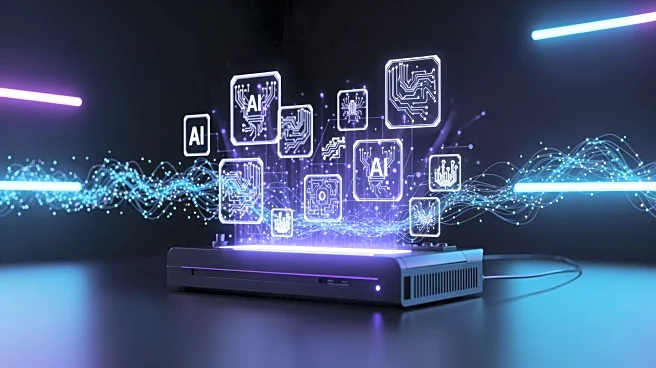What's Happening?
Embark Studios has integrated AI technology into its game Arc Raiders, specifically using AI-driven text-to-speech for player communication voice lines. This approach allows for efficient updates without
requiring voice actors to record new lines for every content addition. Shams Jorjani, CEO of Helldivers studio Arrowhead, supports this use of AI, noting its potential to improve gaming experiences by facilitating better player connections. Jorjani acknowledges the divided opinions on AI in the gaming industry, with some embracing it and others fearing it threatens their creative integrity. He emphasizes the importance of balancing AI use with respect for intellectual property rights.
Why It's Important?
The use of AI in gaming, as demonstrated by Arc Raiders, represents a significant shift in how games are developed and updated. By streamlining the process of adding new content, AI can reduce production time and costs, potentially leading to more frequent updates and richer gaming experiences. However, this also raises concerns about the impact on traditional roles within the industry, such as voice acting, and the ethical implications of AI-generated content. The debate over AI's role in gaming reflects broader discussions about its impact on various industries, highlighting the need for careful consideration of intellectual property rights and fair compensation.
What's Next?
As AI continues to be integrated into game development, industry stakeholders may need to establish guidelines and standards to address ethical concerns and protect creative rights. Developers might explore further applications of AI to enhance gameplay and user experience, while balancing the need for human creativity and input. The ongoing dialogue between AI proponents and critics will likely shape future policies and practices in the gaming industry.
Beyond the Headlines
The integration of AI in gaming could lead to long-term changes in how games are produced and consumed. It may influence the types of skills valued in the industry, with a potential shift towards technical expertise in AI and machine learning. Additionally, the cultural impact of AI-driven interactions in games could alter player expectations and experiences, prompting discussions about the nature of human connection in digital spaces.









